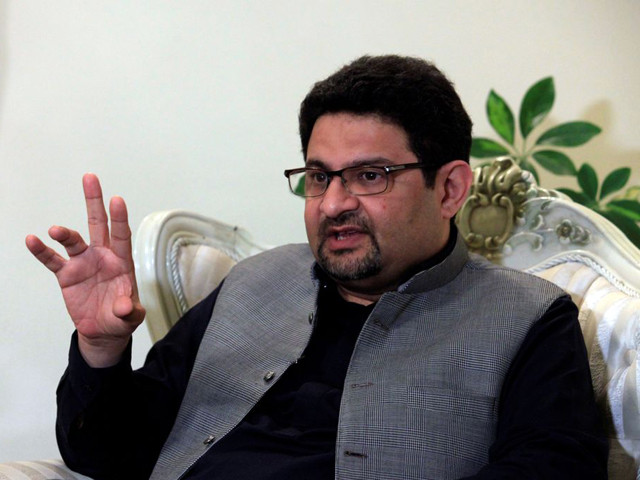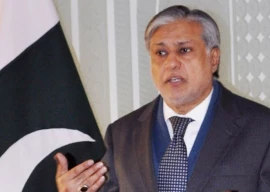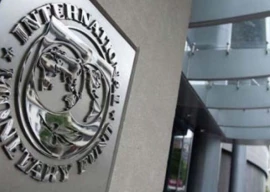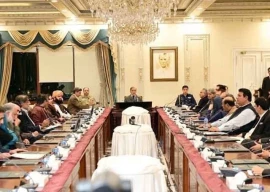
Former finance minister Miftah Ismail has stated that the risk of Pakistan defaulting would not be lessened even if an agreement with the International Monetary Fund (IMF) is reached.
During an interview on Thursday with a private news channel, Miftah said that the risk of default would not decrease immediately, and the percentage of that risk would not drop instantaneously with the IMF agreement.
He believed, however, that the agreement would be signed by next week because "necessary steps" had been taken.
The ex-minister stated that certain political moves have to be taken, including on the prime minister's level as previously the global money lender had spoken directly to the premier. He added that talks must also be held with “friendly nations”.
Read Transfer of power to grassroots only solution for economy: Miftah
Miftah said that there was a “trust deficit” between the IMF and the finance ministry which could be bridged by the prime minister having a dialogue with other nations.
He maintained that the IMF agreement was the “first step”.
The interviewer then questioned if anything in the economy was going well as on one hand, the State Bank of Pakistan (SBP) was tightening the monetary policy by raising interest rates to control inflation and on the other hand, it was injecting money into the market through Open Market Operations (OMOs).
“The government’s appetite is insatiable,” Miftah said, adding that banks were first given loans and then they repaid the loans to the government, leading to no monetary tightening.
He furthered that some structural changes must occur, such as, an increase in taxes and a reduction in expenditures.
Read More Dar blows hot and cold about finances
According to Miftah, the government took certain structural decisions due to which the deficit could not be controlled. He maintained that even if Rs20,000 billion were collected, the country’s budget deficit could not be fulfilled and that the figure was 25% of Pakistan’s GDP.
Clarifying that he was not talking about the incumbent government or the Pakistan Muslim League-Nawaz (PML-N), but rather all governments, he said that in the past 70 to 75 years, the government was unable to do any work. He detailed that half the children in the nation were not in school.
He continued that circular debt was increasing for the past 20 years, and all governments have failed to decrease it despite their promises.
Miftah added that the government was trying to privatise the small and medium enterprises bank for the past 15 years but failed. In comparison, he gave the example of Dubai for erecting “half a city” in 15 years, and China for laying down extensive gas pipelines.
“The government is ineffective, unless and until we change – and I believe this involves empowering local governments and we are nowhere”.


































-(1)1714378140-0/AliAminMaryam-(4)-(1)1714378140-0-270x192.webp)








COMMENTS
Comments are moderated and generally will be posted if they are on-topic and not abusive.
For more information, please see our Comments FAQ